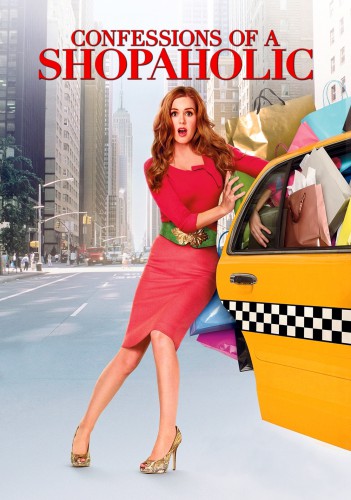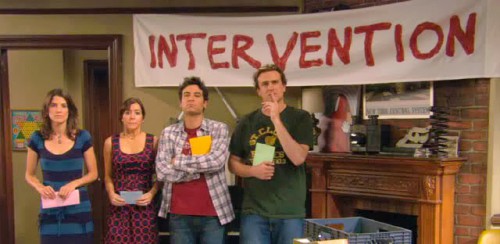
Welcome to the eleventh installment of author Ted Scofield’s series on everybody else’s biggest problem but your own. If you missed one or more of the previous installments, you can find them here. New installments will be posted every two weeks, on Tuesdays.

On our quest for a collectively applicable definition of greed, we have reached the ninth and final factor we will examine before moving on to the second leg of our adventure.
The law, as in the law of the land, not the Law of God or the unofficial little-l laws of society. It’s our least common denominator, the lowest hanging fruit. It is the one objective standard that applies to all Americans. The law is the baseline for civil behavior, what is least expected of us, and it plays a far more prominent role in our quest than we are willing to admit.
***
“It’s not greed if it’s legal.” I hear variations of this theme frequently, and in the murky waters that envelop greed, it is an intoxicating, gin-clear premise. If we follow the law then, no worries, we’re not greedy. The law is “black letter,” printed in leather-bound books. It can be understood, followed, obeyed. We need not agonize if we have too much stuff, or if we have stuff we don’t need, or if we aren’t satisfied with our three-bedroom house and non-European SUV, or if we are just too darn busy to care. We aren’t breaking any laws – right? – so we are not greedy.
On the surface the argument makes sense, and it sure does put to rest a lot of uncertainty and self-doubt. The ‘law of the land’ grants objective absolution equally applicable to all. It may be the least, but it gives us the most metaphorical rope to pull ourselves out of the dark waters of greed (or perhaps to hang ourselves?).
 But when I articulate the proposed definition to people, 99% are horrified, often incensed by the very idea of it.
But when I articulate the proposed definition to people, 99% are horrified, often incensed by the very idea of it.
“No, that is completely wrong,” a friend said to me. “Plenty of people are greedy who do not break the law!”
“Greed is a cause of breaking the law,” a conference participant argued, “not the result of it.”
“Ridiculous,” a college student told me. “Greed is a moral issue, not a legal one.”
You probably concur: Greed transcends the law, exists outside of its broad behavioral boundaries. Law-abiding humans can indeed be greedy.
As I alluded to a moment ago, in my experience 99% of us agree that the law does not define greed. Intellectually we reject the hypothesis, with a remarkably consistent level of disgust.
But what’s going on out there in the real world? What do we see in practice in our society? If we reject the law as the yardstick by which greed is measured, what is the standard?
A middle manager constantly shouts at his subordinates, shakes his fist and, the final straw, throws a computer mouse across the conference room. He hasn’t broken any laws, but his superiors suggest, if he wants a positive performance review next year, he attends anger management classes. “Generally,” the Mayo Clinic reports, “counseling for anger management focuses on learning specific skills and ways of thinking so you can cope with anger.”
Gluttony certainly is not illegal, but “Overeaters Anonymous offers a program of recovery” from consuming too much food. Food Addicts Anonymous shares the same goal, helping sufferers cope with “a biochemical disorder that occurs at a cellular level.”

One must not be a convicted prostitute to seek help from Sexaholics Anonymous, Sex Addicts Anonymous or Sexual Compulsives Anonymous. One only need be a self-identified “lust addict.”
Do you or a loved one need to “recover and heal from problems caused by excessive game playing”? If so, “On-line Gamers Anonymous, founded in 2002, is a self-help fellowship comprised of people from all social, economic, cultural, gender and racial backgrounds.”
After reading a disturbingly inspired book on tidying, my wife and I recently addressed some unneeded items in our home, and we managed to do so without the help of Clutterers Anonymous, “a fellowship of men and women who share their experience, strength, and hope with each other that they may solve their common problem with clutter.”
Alcohol, drugs, shopping, gambling, nicotine, food, sex, clutter, video games, you-name-it – if we’ve got a problem with any number of vices, society offers plenty of help short of the forced deprivation of incarceration.
But what about greed? Can I join a self-help group to recover from my greed? Do employers order workers to attend mandatory greed management classes? Is there a twelve-step fellowship for the greedy?
Let’s drop down to the personal level. Some of us have participated in an intervention for friends abusing one substance or another. Many of us have either actually taken a friend aside, or desperately wanted to do so, to express concern about alcohol or anger or adultery or overeating or any other of a host of self-destructive behaviors.

But what about greed? Have you attended a greed intervention? Have you ever said discreetly to a friend, “Hey, Chris, I’m concerned about your greed. You made a lot of money last year and you spent all of it on yourself”?
Despite his infamously lavish lifestyle, Bernie Madoff was a hero for boosting the retirement accounts of his customers. And then, a few felonies later, he wasn’t. Junk bond alchemist Michael Milken was a Wall Street legend until a guilty plea spun gold into straw. Martha Stewart was a billionaire domestic goddess until a little insider trading landed her in jail. “American Greed” debuted on CNBC in June 2007 with the tagline “Some people will do ANYTHING for MONEY,” but to be featured on the show, that “anything” must be against the law.
Why? If greed exists in our society, why isn’t help available? How do we identify it, admit to it, cope with it, recover from it?
And why do I so belabor the point? Because it’s a critically important one (not to mention the bridge to part two of this series). It is the hidden yet volatile core of the greed discussion.
Intellectually, we fundamentally reject the notion that the law is the appropriate cultural standard by which we should define greed. But, as a society, that is exactly how we behave, how we go about our daily business, if you will. Despite our strong feelings to the contrary, it is our quotidian reality.

Collectively we do not label others, or self-label ourselves, as greedy. We do not stand up at a podium in a school basement and announce, “Hi, my name is Ted, and I’m greedy.” The Mayo Clinic does not offer greed counseling and we do not have recovery fellowship groups to cope with greed. Our collective practice is, if our behavior is not illegal, we do not label it greedy.
Remarkably, the same cannot be said for the un-greedy. Founded in 2005…
Underearners Anonymous, often abbreviated as “UA,” is a twelve-step program for men and women who have come together to overcome what they call “underearning.” The underlying premise is that underearning is a kind of mental disorder, rather like the alcoholic’s self-destructive compulsion to drink to excess.
UA cites a dozen “symptoms of underearning,” three of which stand out:
- Giving Away Our Time – We compulsively volunteer for various causes, or give away our services without charge, when there is no clear benefit.
- Undervaluing and Under-pricing – We undervalue our abilities and services and fear asking for increases in compensation or for what the market will bear.
- Misplaced Guilt or Shame – We feel uneasy when asking for or being given what we need or what we are owed.
 The message is black letter, the lesson clear: Too much volunteering and unreciprocated selflessness are symptoms of a mental disorder. Not demanding from your boss what the market will bear is tantamount to substance addiction. Feeling guilty about the stuff we really do need is self-destructive. The UA logo’s four words leave no doubt: Abundance, Freedom, Prosperity, Serenity. The American Dream.
The message is black letter, the lesson clear: Too much volunteering and unreciprocated selflessness are symptoms of a mental disorder. Not demanding from your boss what the market will bear is tantamount to substance addiction. Feeling guilty about the stuff we really do need is self-destructive. The UA logo’s four words leave no doubt: Abundance, Freedom, Prosperity, Serenity. The American Dream.
So, underearners have a fellowship group, a twelve-step program to help them cope with and recover from not making enough money.
Greedy people do not. Why?
If greed does indeed transcend the law’s low threshold, if greed is a moral issue, why do we abjectly fail to identify it and treat it as such? Why do we pretend the law defines greed, when we know it does not? Looking back, over the past five months, we have examined nine commonly cited attributes of greed, and none of them bring us closer to a generally acceptable definition.
Our culture’s inability to define, acknowledge and deal with greed is the hidden core of our quest, the molten magma beneath our feet, silently sliding continents across our planet and occasionally bubbling up, and only then do we take notice of it, shocked by its violence and transformative power.
Why has our culture failed to define greed? Why do we refuse to self-identify as greedy, both individually and collectively? What magma lurks beneath our surface, humanity’s secret, explosive core?
These are the questions we will address in part two of this series.

COMMENTS
3 responses to “Everybody Else’s Biggest Problem, Pt. 11: The Law of the Land”
Leave a Reply













one comment ( not about greed) is AA is not a SELF help fellowship…..it is a GOD help fellowship. Self availed us nothing…..we had to have help from above?
Why do we refuse to acknowledge greed in our society (and ourselves)? Because despite some occasional lip service to the contrary, OUR BROKEN SOCIETY TELLS US TO BE GREEDY! One day a year we’re encouraged to be generous. ONE.
Another great post! I’m really looking forward to part 2 and the answers to the questions posed at the end.
Greed has existed since mankind (generic, no offense to the safe spaces of womenkind), there is a phylogeneticly inherited component to its very existence as a innate surviving trait in our species, the other component one might simply term the capacity for or propensity for greed, this is where a given culture or society either restrains or emboldens the already inherited trait. Greed has been commented upon and duscussed and almost universally condemned, at least in its excessive glutinous manifestations, since the ancient Greeks, if not earlier. Certainly the parable of Scrooge as a warning in Dickens England was such as well. In America, the present days full throttle greed is the direct result of Anglo-American finance capitalism insatiable and absolute need for expansion. Once the tools created by Willson’s Creel commission and England’s Tavistock propaganda institute were applied by Bernays, Lippmann and others to enflame our wants over our needs through the tools of modern advertising, we were set on our path of consumption and finance/fractional reserve capitals debt engorged civilization. It will take its own self-destructive course, in fact it already has.
You point to the rule of law as a loose, very inclusive fence around our conception of greed, perhaps so, but what the end game of this whole civilization destroying process requires is the destruction of that once respected barrier. There is no rule of law in America, certainly not for the most successful at feeding their innate propensity of their greed instincts, either greed for power in politics or greed for wealth and power in business or finance, greed in its broadest sense has consumed its own limitations. There is no rule of law in America for those who have accumulated the most of the two inseparable desires, power and wealth. The end game of any excessive and self-destructive trait is the dead end of evolution, the bad gene or meme ends up being restrained, finished or over many generations eliminated. We are at that point. It will die only through collapse.